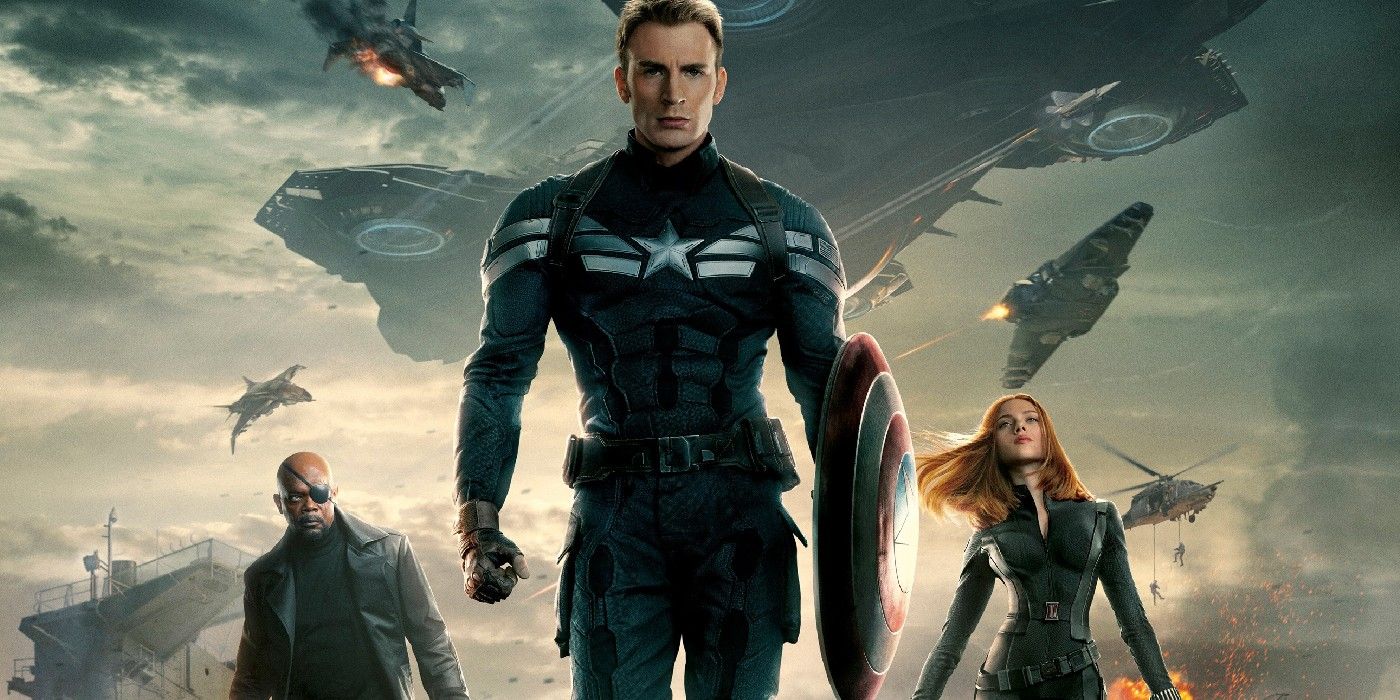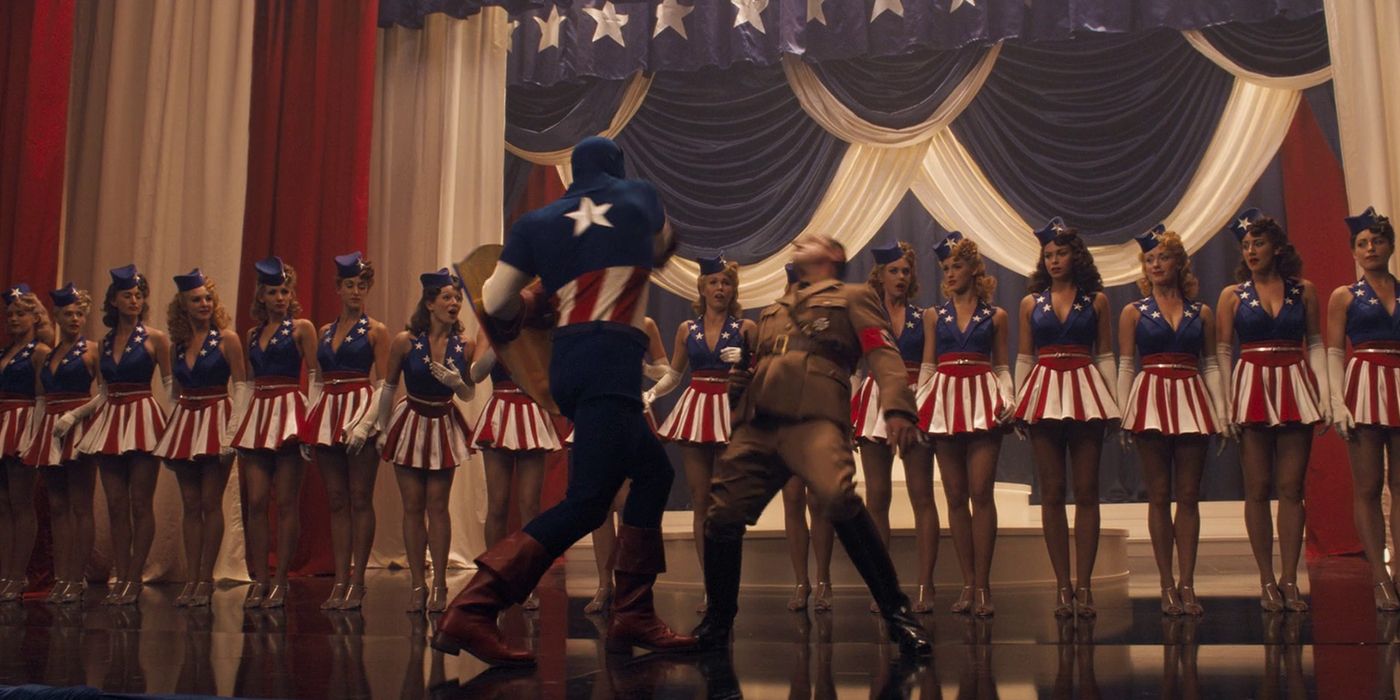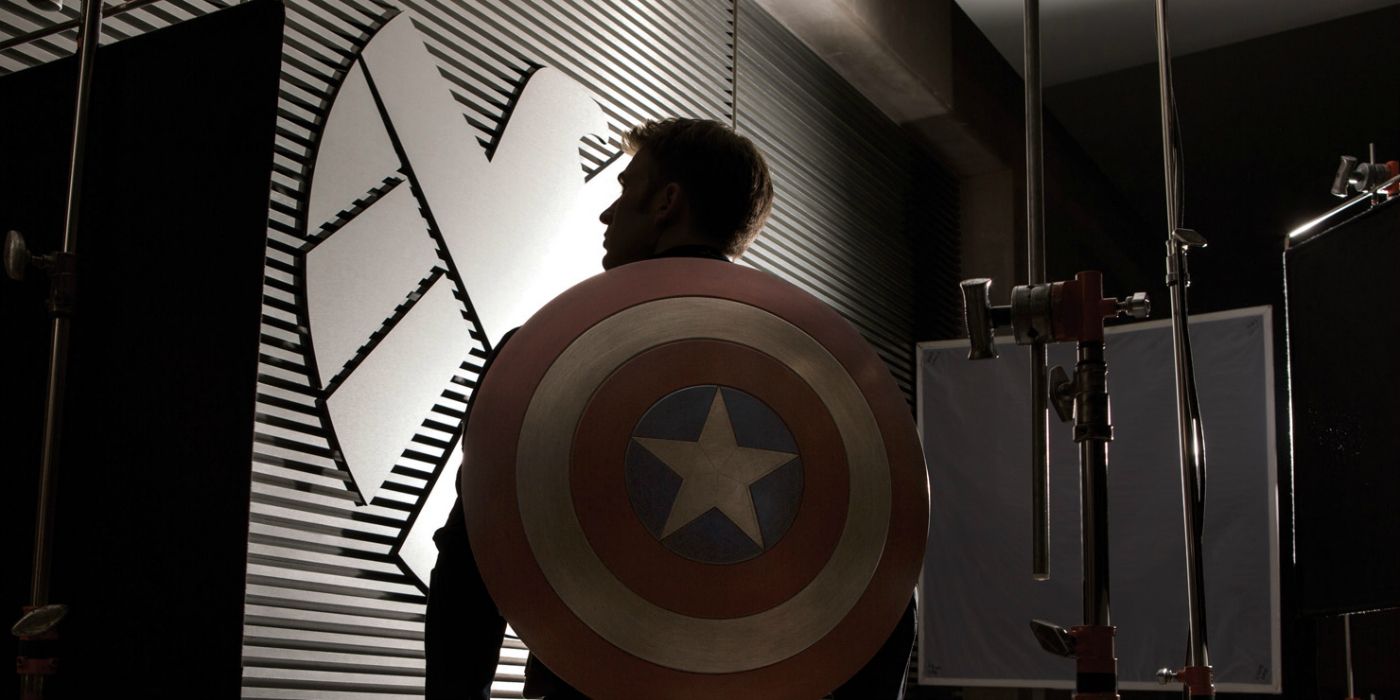Before the Marvel Cinematic Universe, many of Marvel's characters outside the X-Men, Fantastic Four, and Spider-Man were considered box-office poison. Indeed, when Sony was offered $25 million for the film rights for Marvel's entire library of characters, it rejected the offer. Instead, it just bought Spider-Man's film rights for $7 million because the company's higher-ups didn't think audiences would care for the other characters. Obviously, the success of the MCU means that Marvel's entire library of characters now has the potential to be global cinematic juggernauts.
This turnaround in popularity is most apparent with Captain America, specifically the Steve Rogers incarnation of the character. Captain America is one of the most explicitly political characters in Marvel's library: he's white, blonde, with blue eyes and literally wears the red, white, and blue of the US flag into battle. And without getting too political, the United States of America is exactly not a globally beloved nation.
Much of the world does not react well to extreme pro-American propaganda, and without knowing anything about the character, Captain America seems to be the epitome of that. Marvel had the difficult job of separating global audiences' pre-conceptions of the character and somehow making Captain America a global sensation. As is evident from the global grosses of the later Captain America and Avengers films, they succeeded.
The MCU's process with adapting the Captain America was two-fold: first, get the character's origin right, then define the character's role in the present day. The most important distinction made in Captain America: The First Avenger was the difference between Steve Rogers, the person, and Captain America, the mascot. In the film, "Captain America" was a government creation, a mascot used to sell and glorify US involvement in World War II. But it's deliberately dishonest, as Captain America, the hero, ultimately came from Steve Rogers being a "good man." He only embraced the Captain America role to do the right thing but did not advertise himself as such. When pushed by Red Skull, Steve Rogers remained humble, always being "just a kid from Brooklyn."
The work Marvel did with carefully adapting Captain America to the big screen resulted in a decently successful first film. While not a global smash hit, the film was a solid foundation for the character. Most importantly, audiences were left with an important distinction: Captain America is not the same as the United States government. The question then became what to do with Captain America for his sequels. The original film was a largely optimistic look at America's role in World War II, but the United States had changed over 70 years, and naturally, Captain America's relationship with his country changed with it.
The most significant stroke of genius in Captain America: The Winter Soldier was that the villains were the US government. Since it was a Marvel film, it was not fully able to commit to this idea and was limited to fictional organizations such as SHIELD and Hydra. And while blaming Hydra might seem like an easy way out, the simple point of the story was that Hydra was able to grow within SHIELD and, by association, the US Government. Its highest-ranking member was Alexander Pierce, who was as American as they come. It's a subtle subversion that continues the distinction made in the first film. And it worked. The Winter Soldier earned over $700 million worldwide and led to Captain America: Civil War, which, in turn, grossed over $1 billion. Captain America was now a global hit. The rocky relationship between the character and his government is a thread that has continued through the character's stories, even as recently as The Falcon and the Winter Soldier.



